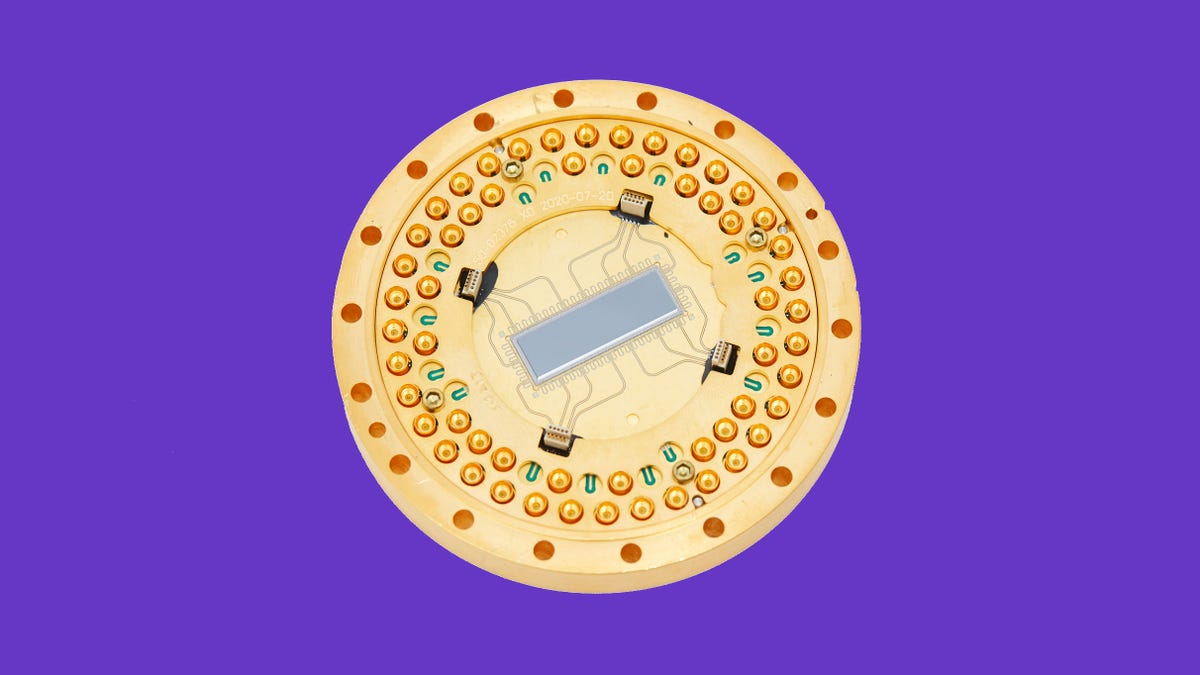Quantum Computing Startup Rigetti Lays Off 28% of Staff
Quantum computing progress is slow, and investors are gloomy.

Rigetti Computing makes its own quantum processing units, the brains of its quantum computers.
Rigetti Computing, one of a host of quantum computing startups competing with bigger players like IBM and Google, said Friday that it's cutting 28% percent of staff to focus on delivering and improving a new machine as soon as possible.
The company, which replaced founding chief executive Chad Rigetti last year, also named a new chief technology officer, David Rivas, and a new chief financial officer, Jeffrey Bertelsen.
The company's near-term priority will be to finish its 84-qubit machine, called Ankaa, this quarter, followed by improvements to its computing reliability and. Sustaining long sequences of calculations is a key challenge for all quantum computers, since their fundamental data processing elements, called qubits, are easily perturbed.
Eventually, Rigetti plans to gang four Ankaa machines together into a larger system called Lyra. The company's previous road map called for Lyra to emerge toward the end of 2023, but Rigetti didn't detail any schedule under its new plan.
"We believe these actions put Rigetti in a better position to deliver on the promise of quantum computing and are aligned with the company's refocus on nearer-term priorities," new CEO Subodh Kulkarni said in a statement.
Quantum computing could revolutionize the industry, tackling problems out of reach of the conventional designs we use today in everything from mainframes to smartwatches. That could include developing new materials that improve solar panels and electric car batteries, finding new drugs and making package delivery more efficient. But achieving that progress will take years of quantum computing progress.
Rigetti and rivals IonQ and D-Wave Systems all went public with a process called a special-purpose acquisition company, or SPAC, raising $262 million in Rigetti's case. The process was popular because it's simpler than the traditional initial public offering, but its popularity has waned.
Rigetti faces delisting from the Nasdaq market if its stock price doesn't stay above $1 for 10 days by July 24, a goal it could reach in a few days. In trading Monday, its stock dropped 2 cents to $1.17.

